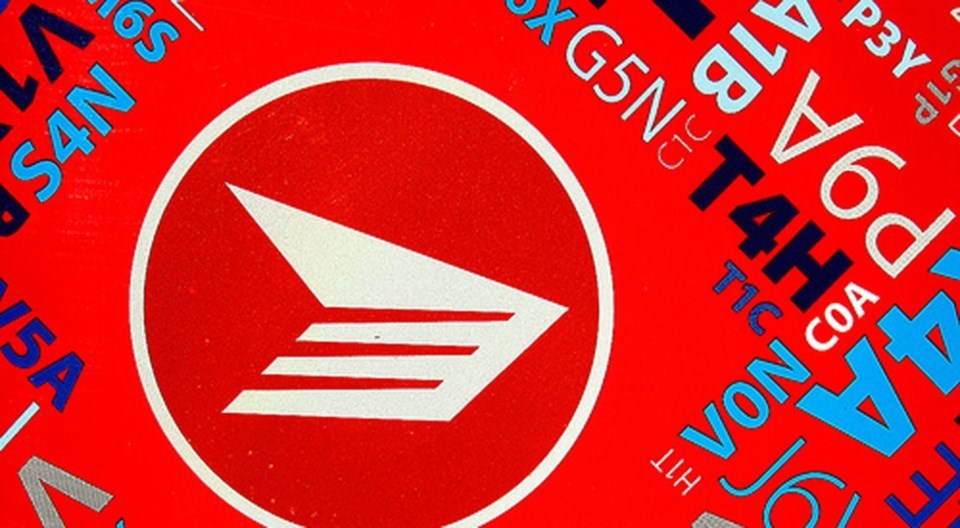Canada Post and representatives from the Canadian Union of Postal Workers (CUPW), which represents 55,000 workers, are back at the bargaining table Wednesday, Aug. 27, following negotiation delays on Monday, Aug. 25 and Friday, Aug. 22.
Canada Post reports that the delays were due to the company needing more time to review global offers from both the Rural and Suburban Mail Carriers and Urban Mail Carriers.
These ongoing negotiations have lasted more than a year and a half, and have already resulted in union members rejecting “latest and final offers” from Canada Post.
The new proposed collective agreement includes wage increases tied to inflation, changes to the hiring of part-time workers, and improved worker health and safety.
Prince George's CUPW local 812 president Nicole Chouinard said the delays were not surprising and have caused disappointment among the postal workers she represents.
“It’s the same old story,” said Chouinard. “This isn’t, obviously, the first time that Canada Post has told us that they need more time or has put off meeting with us at the bargaining table. So it’s not necessarily a surprise. Disappointing, but not a shock.”
She added that while she is cautiously optimistic that both sides may reach common ground today — despite the back-to-back delays — she remains uncertain.
“It’s hard to read whether or not the delay is the same old, same old — or the delay is a sign of perhaps today being the day when we find some common ground and are able to come to an agreement,” said Chouinard. “I really couldn’t tell you one way or another because I hate to get optimistic about it, because we’ve been let down so many times. But the amount of time it took them to review the offer, I’d like to think, is optimistic.”
Chouinard said another major issue she hopes will reach a mutually beneficial conclusion is the need for wage increases to offset rising inflation — something she says Canada Post has remained firm on.
“We’ve traditionally had a cost-of-living allowance that gets triggered at a certain percent,” said Chouinard. “Canada Post had initially offered us that triggered at an extremely high point. It would never happen. We’d never get that cost-of-living allowance. We had countered with something a bit lower and they’ve offered something a bit more reasonable. Again, that only gets triggered if inflation gets out of control. What we would like to see is people being able to actually count on a decent wage — not a perk if inflation gets out of control. We just want a reasonable living wage for workers.”
These ongoing negotiations come on the heels of the recent release of Canada Post’s Q2 results.
Canada Post reported a loss of approximately $407 million before taxes in its second quarter. The corporation also stated that, since 2018, it has faced cumulative losses exceeding $5 billion.
In its report, Canada Post cited consumer “uncertainty” — specifically regarding labour disputes and potential disruptions to services — as a key challenge this quarter.
Chouinard told The Citizen she believes that uncertainty is being created by Canada Post, not the union.
“From the union standpoint, that doesn’t ring true for us because the uncertainty is being created by Canada Post,” said Chouinard. “Because they are delaying negotiations with us time and time again. We would love nothing more than to have a collective agreement and give Canadian customers all the confidence in the world that they can count on their mail and packages. We’re not the ones delaying the process.”
Chouinard also said she finds that statement from the employer frustrating, as she believes it discounts the work being done on the front lines.
“It’s frustrating for us when you see a report get released where Canada Post is claiming that they’re just even more broke than they’ve ever, ever been and that the reason for that is this uncertainty in Canada Post’s delivery.
“It’s just — it’s so infuriating, as somebody out on the street doing the work — to hear that and know that our corporation is being run by people who are getting operational bonuses, who are making more than the Prime Minister, and that we are the reason why Canada Post is failing. It’s an insult, because at the end of the day, Canada Post’s upper management is responsible for this business being a success.”
Canada Post’s quarterly report noted that a recent increase in stamp prices — from $1.40 to $1.50 — has boosted revenue and helped offset losses.
Chouinard said that change was one of several suggestions CUPW has proposed over the years — and she feels the union’s ideas have consistently been overlooked.
“The union has gone to them time and time again and said, we get it — you need to diversify, you need to find other revenue sources,” said Chouinard. “We’ve offered things like seniors’ check-ins. Why aren’t you putting charging stations at Post offices all over the country? Why aren’t you putting up cell towers in small communities?
“There are so many ways for Canada Post to make revenue that aren’t at the expense of jobs, that aren’t at the expense of our physical health — but for some reason, they can mismanage the company year after year, and again, it’s our fault.
“If you were in the private sector, and you were the CEO of a private business, and you had year after year of alleged billions of dollars in losses — you wouldn’t have your job.”



